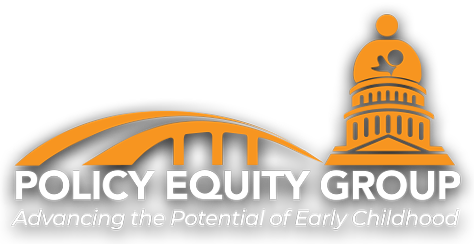With the results of November’s midterm elections behind us, we have been working to assess the potential impacts on Early Care and Education (ECE). Across the U.S., there were a few significant wins for our nation’s families and earliest learners, with notable successes in some states in which we work and partner. At the same time, this momentum continues to be overshadowed by the upcoming ECE fiscal cliff facing all 50 states and the District of Columbia as $48 billion in funding from two federal COVID-19 relief and rescue packages continues to be spent down with no additional funding on the horizon.
Prior to the midterm elections, we shared five things voters should be thinking about before casting their ballots. This month, we share four major election outcomes that will impact federal and state ECE systems:
1. Big Win for New Mexico: As we continue our work in partnership with the University of New Mexico Family Development Program (FDP) on a project for the New Mexico Early Childhood Education and Care Department (ECECD) that seeks to assess and improve the landscape of early learning in the state, we are excited to see that New Mexico voters approved a ballot initiative that recognized child care as a constitutional right. Voters decided to distribute 1.25% of the state’s land grant permanent fund to education, including a set-aside to support educator wages. Much of the groundwork laying the foundation for this success was led by Elizabeth Groginsky, New Mexico’s secretary for early childhood education and Mariana Padilla, Director of New Mexico’s Children’s Cabinet.
2. Colorado voted to provide free school meals: At our November Farm-to-ECE Convening we hosted in New Orleans, we were surrounded by dedicated systems thinkers and changers, and felt hopeful about the future of food security for children. The Colorado voters did not disappoint and voted in favor of funding free school meals for all children in the state’s K-12 system. We wonder what this could look like for children in the ECE system through an expansion of programs such as the federal Child and Adult Care Food Program (CACFP).
3. Capitol Hill has undergone a few changes, and some major child care champions are moving around.
- Republicans took back the House, which means they now control the major House committees of jurisdiction: Education and Labor/Workforce, Ways & Means, and Appropriations. Stay tuned for updates on who will be the Committee Chairs.
- Longtime child care champion, Patty Murray, has stepped down from her role as Chairwoman of the U.S. Senate Committee on Health, Education, Labor & Pensions (HELP) to become President Pro Tempore of the Senate and will chair the Senate Appropriations Committee. What this means: a child care champion is third in Senate leadership and will help determine the future of funding for major ECE programs.
- In the House, Rep. Bobby Scott will most likely maintain his leadership role on the Committee for Education and Labor/Workforce, while Rep. DeLauro will continue at the helm of House Appropriations. While Speaker Pelosi, a major champion for children has stepped out of Democratic leadership, Rep. Katherine Clark, who led efforts to appropriate the ARPA child care stabilization dollars, has become the 2nd ranking Democrat as minority whip behind the new minority leader Hakeem Jeffries.
4. The ECE system is still broken. While there were some changes and progress, one midterm election didn’t fix a broken ECE system. The new year will require forward-thinking, creative minds, and a collaborative process from everyone to see even bigger changes in the future. At the Policy Equity Group, 2023 will be the “Year of the Early Childhood Workforce” as we work with our partners to create innovative solutions to support better compensation for ECE workers.
Overall, ECE has a strong foundation going into the new year, and we look forward with hope and optimism as we continue working with our partners everywhere to maintain strong momentum on behalf of children, providers, and families.


